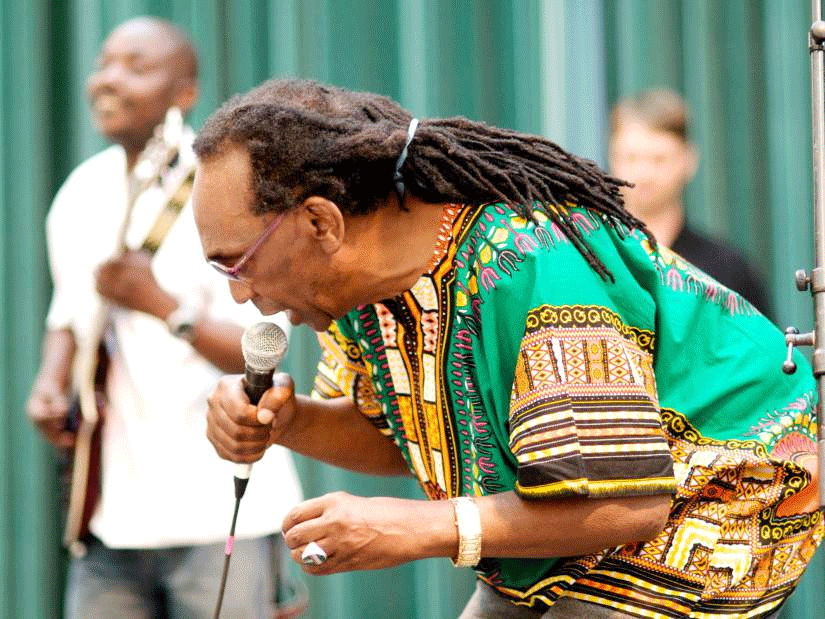
Chimurenga music legend Thomas Mapfumo gave a stellar performance fit for headlining this year’s edition of the African Crossroads, where he was also the guest of honour, on Thursday and Friday.
By Kennedy Nyavaya/Lowen Mutambara
Running under the theme of Re-imagining the pan-African dream — reflecting on the past, experiencing the present and imagining the future, the third edition of the annual event took a hybrid format that saw programmes happen online and offline in several arts hubs across the continent.
Introducing the United States-based crooner, one of African Crossroads moderators Gregg Tendwa described Mukanya, as Mapfumo is affectionately known, as one of the few musicians left that represented the continent’s struggle for independence during and after white colonial rule.
“This guy is one pillar of hope for the African continent, one of the few remaining elders that have that much clarity on where this continent should be and what is possible to be done by the young people,” said Tendwa.
Since beginning his music career, Mapfumo has been known to employ either subtle or hard-hitting lyrics in confronting societal ills particularly triggered by acquisitive politicians in positions of power.
“Thomas Mapfumo is regarded as the father of Chimurenga music and also one of the few icons that have grown the genre of protest music on the continent,” added Tendwa.
Initiated and organised by Hivos, African Crossroads is a community of future-oriented African thinkers and doers that put together ideas for the development of the continent.
- Chamisa under fire over US$120K donation
- Mavhunga puts DeMbare into Chibuku quarterfinals
- Pension funds bet on Cabora Bassa oilfields
- Councils defy govt fire tender directive
Keep Reading
“They gather every year to reflect critically on the most pioneering entrepreneurial, scientific, artistic, and technological developments anchored in African intellectual and technological traditions. African Crossroads is a space where the African collective intelligence and creativity meet to positively shape the future of the continent,” reads their website.
This year Harare, Zimbabwe, had been chosen to host the 2020 edition of African Crossroads in October before Covid-19 wreaked havoc across the world causing unprecedented alterations to life the way that humans knew it.
Zimbabwean journalist and arts critic Stan Onai Mushava, who was part of the debate, said Mukanya was among a handful of local artistes who exported the traditional Zimbabwean beat across the globe.
“Without slipping into narrow binaries, I would say Mapfumo is the archetypical in the sense of popularising the distinctly Zimbabwe sound,” said Mushava.
“Zimbabwe owes Africa much of its music traces of Tanzania, Congo and Kenya in sungura, South Africa’s mbaqanga in Tuku, as well as Jamaica and the United States in young urban music.”
Mushava said Jah Prayzah and Afro-fusion outfit Mokoomba were now stepping into Mukanya’s footsteps in popularising local music across the world. Moderators and participants at the African Crossroads acknowledged that music was a unification driver among people despite the difference in cultural beliefs, race and colour. They said traditional music could unite people when there was a crisis. Backed by his Blacks Unlimited outfit, Mapfumo gave a scintillating live performance that proved to the world that he was still in the game.











